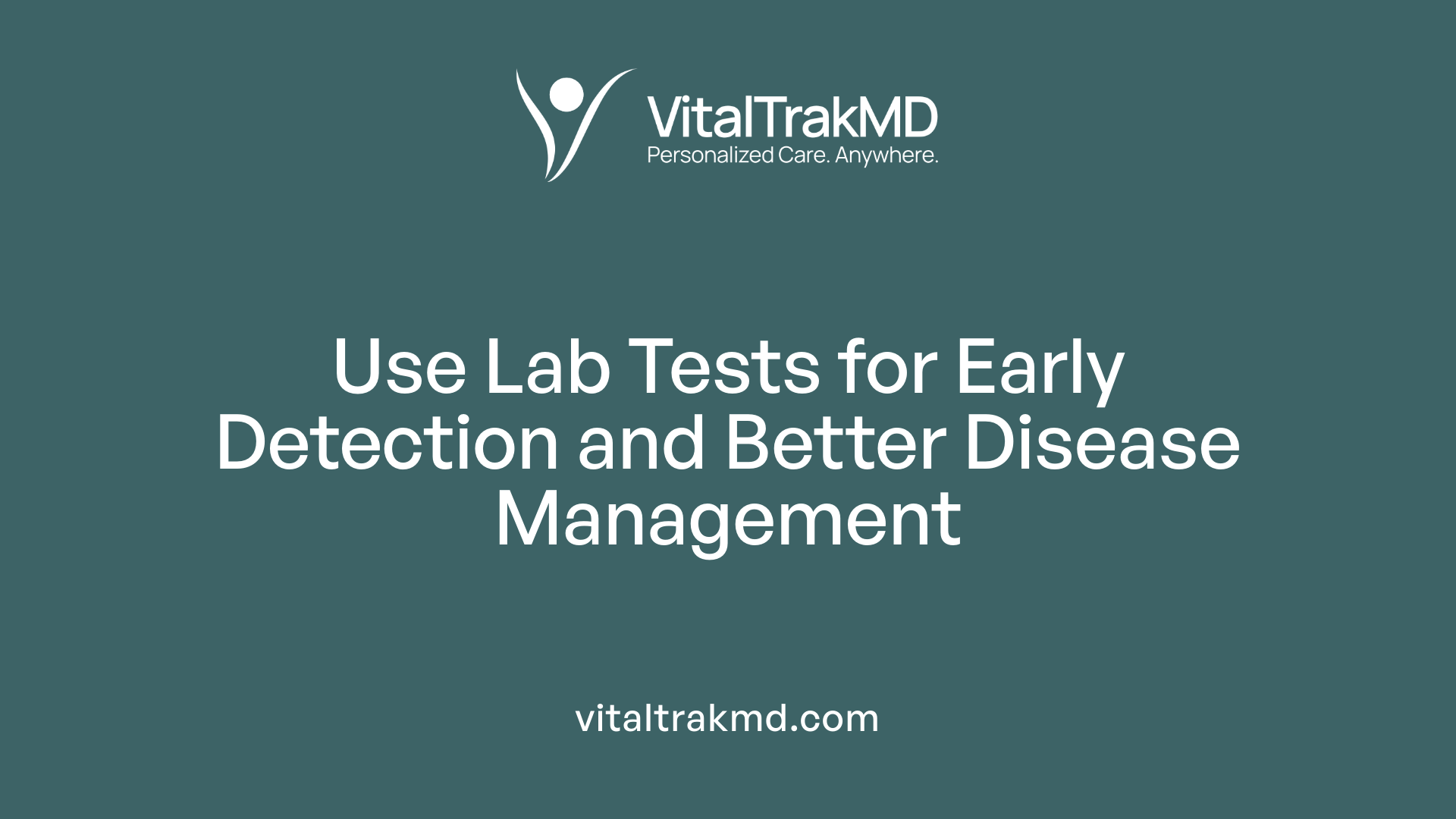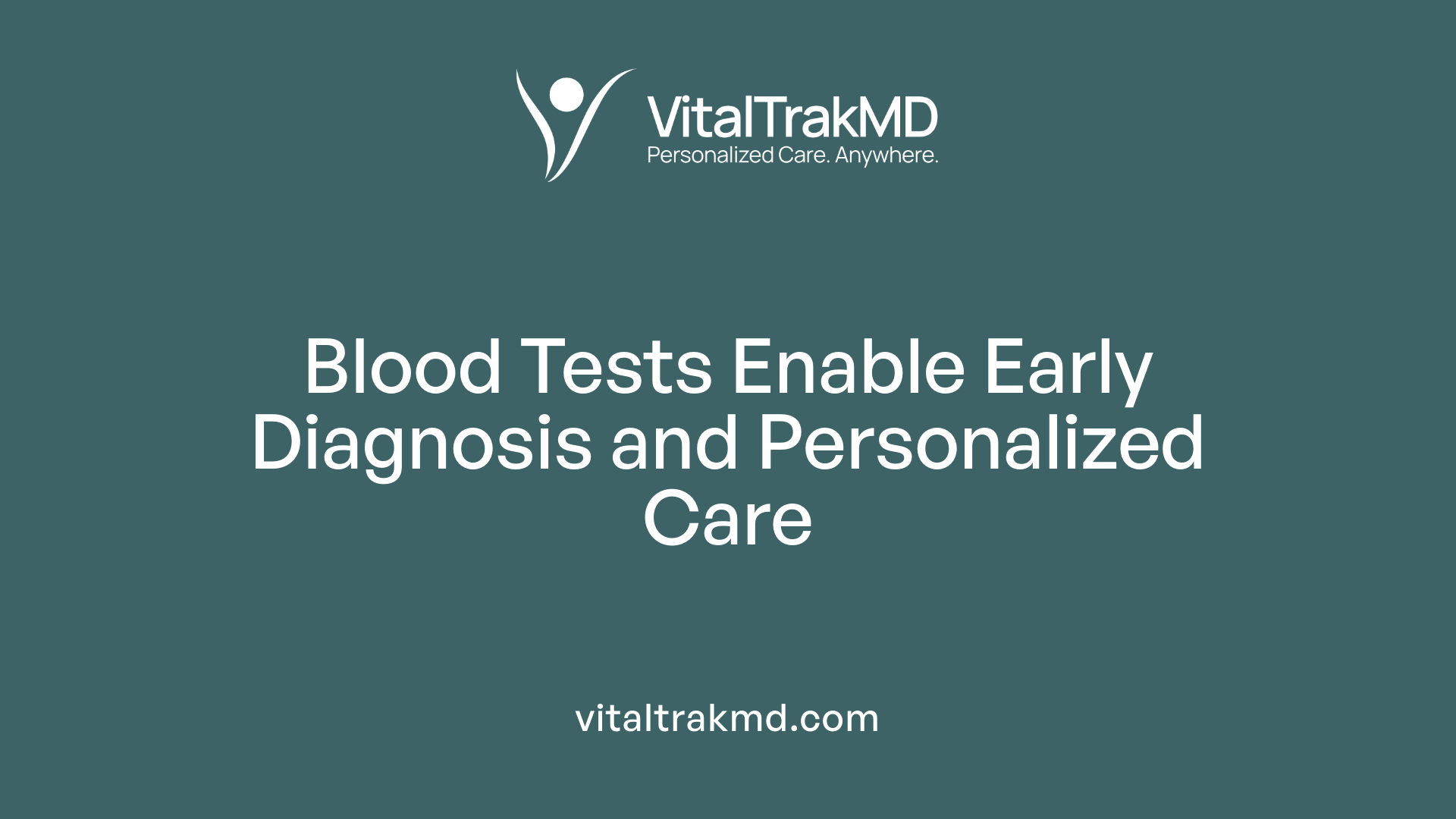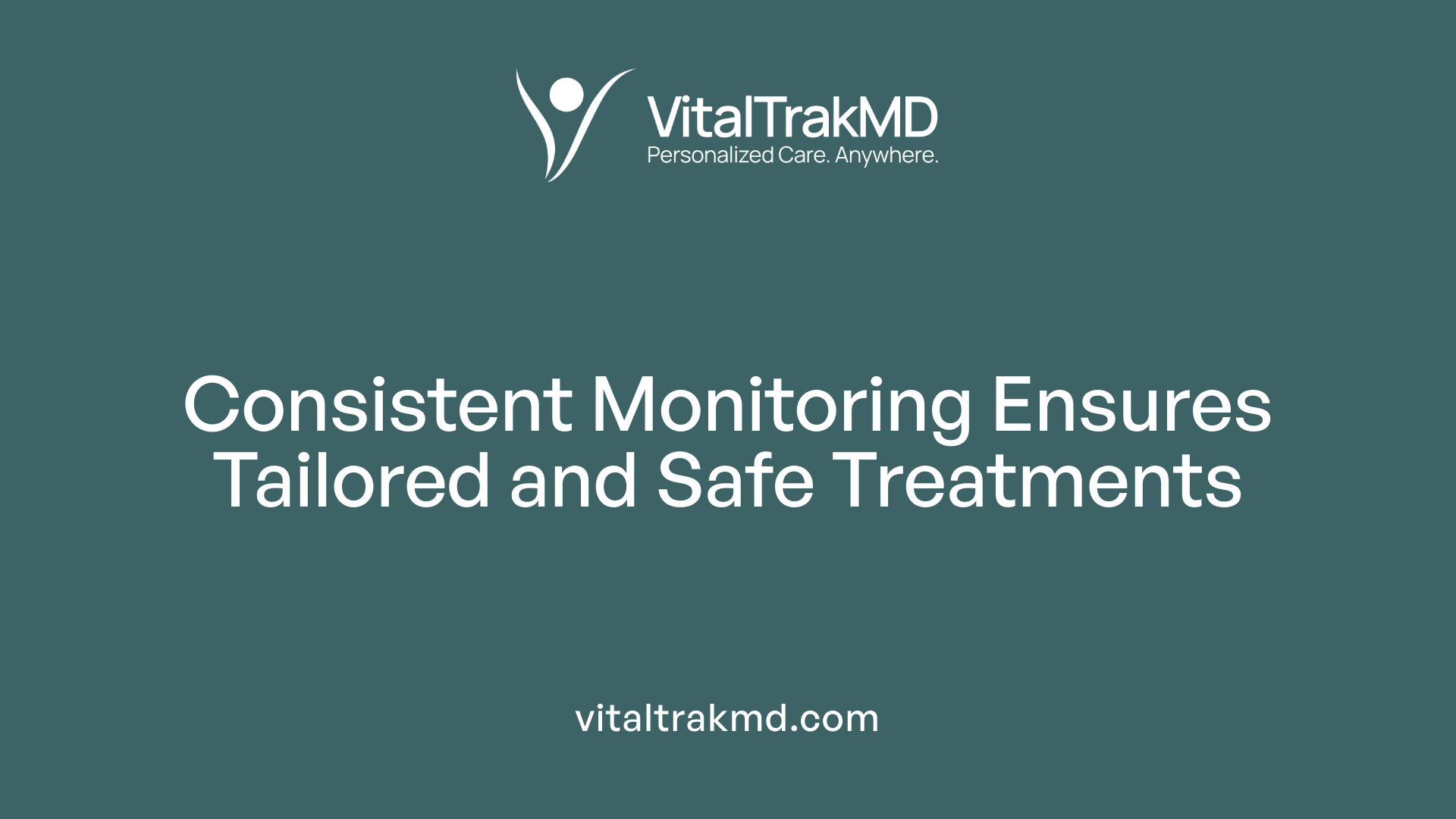Why Regular Lab Tests Are Crucial for Adjusting Medications in Seniors

Understanding the Intersection of Lab Testing and Elderly Care
As the population of older adults continues to grow, the importance of regular laboratory testing becomes increasingly vital in ensuring safe and effective medication management. Seniors experience physiological changes that impact how their bodies process drugs, necessitating precise monitoring through blood tests. This article explores the critical role of routine lab assessments in detecting health issues early, guiding medication adjustments, and enhancing overall health outcomes for older adults.
The Significance of Age-Specific Laboratory Reference Ranges

Why are age-specific laboratory reference ranges important in interpreting test results?
In elderly patients, especially those over 75, physiological changes associated with aging significantly influence laboratory test outcomes. Age-specific reference ranges are crucial because they provide benchmarks that reflect the normal biological variations seen in seniors rather than applying standards meant for younger adults.
As people age, parameters like hemoglobin, serum glucose, and kidney function markers tend to shift. For instance, common age-related changes include decreased renal filtration capacity, altered hormone levels such as TSH, and declining serum iron levels. Without adjusting for these changes, clinicians might misinterpret normal aging variations as abnormalities, potentially leading to unnecessary testing or treatment.
Using age-appropriate ranges improves diagnostic accuracy by helping distinguish between healthy aging processes and pathological conditions. For example, a slightly elevated ESR or a lower hemoglobin in an elderly person might be within normal limits for their age, whereas in younger adults, these results could signal disease.
In diverse populations, such as those in Africa, local demographic factors like ethnicity, diet, and environmental exposure influence blood analyte levels. Therefore, adopting locally derived reference ranges ensures results are relevant and accurate for the specific population, reducing misclassification.
Overall, age- and ethnicity-tailored reference ranges enable healthcare providers to interpret laboratory data accurately, making informed decisions regarding diagnosis, treatment, and monitoring. This precision is vital to avoid overdiagnosis or underdiagnosis, ultimately leading to safer, more effective patient care.
Routine Health Checkups: A Pillar of Elderly Healthcare

How do routine health checkups benefit elderly health care?
Routine health checkups play a crucial role in managing the health of older adults. These regular visits enable early detection of potential health issues such as heart disease, diabetes, kidney problems, and cancers, often before symptoms manifest clearly. Early diagnosis allows for timely treatment, which can prevent complications and enhance recovery outcomes.
During checkups, healthcare providers review medical histories, perform physical exams, and order necessary laboratory tests. This comprehensive approach helps monitor chronic conditions like hypertension, arthritis, and thyroid disorders, ensuring medications and treatments remain effective and appropriate.
Screenings and vaccinations are vital components of elderly care. Immunizations against influenza, pneumonia, and shingles help prevent severe illnesses, while screenings for cancers or osteoporosis promote early intervention. These preventive services reduce the risk of hospitalization and serious disease progression.
Building trust between patients and providers is another significant benefit of routine checkups. These visits foster open communication, allowing seniors to express concerns, receive education on healthy lifestyle choices, and participate actively in their care decisions. This engagement enhances adherence to treatments and supports overall well-being.
Moreover, regular medical assessments can identify nutritional deficiencies, mental health issues such as depression, and functional impairments early, enabling timely support and resources. Ultimately, these proactive measures improve the quality of life, promote independence, and lead to cost-effective healthcare by addressing health issues before they become severe and costly.
Laboratory Tests as Tools for Preventing and Managing Chronic Diseases

How do laboratory tests assist in early detection of chronic conditions among seniors?
Laboratory tests play an essential role in identifying medical issues before they develop into severe health problems. For older adults, routine screening of things like blood glucose, cholesterol, kidney, and liver function can reveal early signs of diabetes, heart disease, or renal impairment. Detecting these issues early allows for timely interventions—lifestyle changes, medications, or other treatments—that can significantly reduce complication risks.
For example, elevated blood sugar levels or an increased HbA1c point toward prediabetes or diabetes, enabling early management strategies. Similarly, abnormal lipid profiles can prompt preventive treatments for cardiovascular health. Regular tests help catch these conditions early, often before symptoms appear, thereby supporting better health outcomes.
How do blood tests monitor disease progression and treatment effectiveness?
After diagnosing a chronic condition, continuous monitoring through blood tests ensures that treatment plans are effective. For instance, individuals on cholesterol-lowering medications have periodic lipid panels to assess how well the drugs are controlling their cholesterol levels.
Patients with diabetes regularly undergo blood glucose testing and HbA1c assessments to track long-term blood sugar control. Kidney function tests, like serum creatinine and eGFR, monitor for potential drug side effects and disease progression. These measurements help clinicians adjust medications and lifestyle recommendations, preventing disease worsening.
Furthermore, some tests like liver function panels are critical for those on medications metabolized by the liver, ensuring medication safety and efficacy.
How do laboratory tests help in detecting nutritional deficiencies and inflammation?
Nutritional deficiencies are common in older adults and can lead to fatigue, cognitive decline, and immune deficiencies. Blood tests for vitamin D, B12, calcium, and iron help identify deficiencies that may need dietary or supplement interventions.
In addition, inflammatory markers such as C-reactive protein (CRP) and erythrocyte sedimentation rate (ESR) tend to increase with age, reflecting underlying chronic inflammation or disease activity. Elevated levels can prompt further investigation into potential infections, autoimmune conditions, or other inflammatory processes.
Early detection of these issues allows for targeted treatments, improving overall health and functional capacity.
How does laboratory testing support comprehensive care in older adults?
Effective management of chronic illnesses requires coordination among various healthcare providers. Laboratory results inform different specialties—such as cardiology, endocrinology, and geriatrics—by providing objective data for decision-making.
For example, a pharmacist might adjust medication dosages based on kidney function tests, while a dietitian may recommend specific dietary changes based on nutrient levels. Regular testing also helps prevent adverse effects of medications and supports early identification of side effects.
Overall, lab testing fosters a multidisciplinary approach to health management, ensuring all aspects of an older adult’s health are addressed comprehensively.
| Aspect | Tests Involved | Purpose | Additional Notes |
|---|---|---|---|
| Early detection | Blood glucose, Lipid Panel, Kidney & Liver Panels, CBC | Identify preclinical disease states to enable early intervention | Tests can detect conditions like diabetes, heart disease risk, and kidney issues before symptoms occur |
| Monitoring management | HbA1c, Lipid Panel, BUN & Creatinine | Track treatment effectiveness and disease control | Adjust therapy based on test results to prevent disease progression |
| Nutritional & inflammation status | Vitamin D, B12, Iron, CRP, ESR | Detect deficiencies and inflammatory states | Guide dietary adjustments and anti-inflammatory strategies |
| Multidisciplinary care | All relevant tests | Provide comprehensive overview for personalized treatment | Enabled by coordinated sharing of lab data among providers |
Regular laboratory screening plays a vital part in prolonging health, enhancing quality of life, and maintaining independence among older adults by enabling early detection, ongoing management, and personalized care for chronic conditions.
Blood Tests as Key to Early Detection and Personalized Approach

How do blood tests aid in the early detection and management of age-related health conditions?
Blood tests serve as a fundamental tool in recognizing early signs of health issues that commonly affect seniors. They allow healthcare providers to detect diseases before symptoms develop, such as high blood sugar indicating diabetes or abnormal cholesterol levels signaling cardiovascular risk.
Recent advances include blood tests capable of identifying biomarkers linked to neurodegenerative diseases like Alzheimer’s. For example, measuring proteins like pTau217 and the ratio of β-amyloid helps in early diagnosis, enabling timely interventions that can slow disease progression.
Blood tests also offer insight into biological aging and organ health. Markers such as creatinine, eGFR for kidney function, and liver enzymes can highlight organ decline—errors that might be missed through physical examination alone. These results empower personalized treatment plans tailored to the individual's organ reserve and health status.
Furthermore, inflammation markers like C-reactive protein (CRP) and erythrocyte sedimentation rate (ESR) help evaluate chronic low-grade inflammation, a common feature in aging linked to various age-related diseases. Monitoring hormones such as TSH provides clues to thyroid health, which influences energy levels and metabolism.
Overall, routine blood testing enhances early diagnosis, supports preventive care, and guides interventions aimed at prolonging healthspan in seniors.
| Blood Test Type | What It Measures | Significance for Seniors | Common Use Cases |
|---|---|---|---|
| CBC | Red and white blood cells, platelets | Detects anemia, infections | Energy levels, immune function |
| Lipid Panel | Cholesterol levels | Evaluates cardiovascular risk | Heart disease prevention |
| Glucose & HbA1c | Blood sugar levels | Diabetes management | Monitoring glycemic control |
| Kidney Function Tests (Creatinine, eGFR) | Kidney health | Detects early impairment | Chronic kidney disease screening |
| Liver Function Tests (LFTs) | Liver enzymes | Identifies liver issues | Medication monitoring |
| TSH & Thyroid Panel | Thyroid hormone levels | Thyroid health assessment | Managing hypothyroidism |
| Vitamin & Mineral Tests | Vitamin D, B12, Iron | Detects deficiencies | Fatigue, cognitive decline |
Blood testing is integral to a proactive health approach for seniors, not only for diagnosing conditions early but also for shaping personalized preventive strategies. Regular testing helps monitor aging processes at molecular and organ levels, supporting healthier, longer lives.
The Critical Need for Consistent Health Assessments in Seniors

Why is it critical to have consistent health assessments for medication adjustments and overall health management in seniors?
Regular health assessments are vital for older adults because they help detect potential health issues early, allowing for timely treatment and management. As seniors age, physiological changes such as decreased renal function, altered hormone levels, and variations in blood lipids can influence test results, making systematic monitoring essential.
Monitoring health regularly enables healthcare providers to tailor medication plans appropriately. Many seniors take multiple medications (polypharmacy), increasing the risk of drug interactions and side effects. Routine assessments help in reviewing and adjusting medications, ensuring they remain effective and safe. For example, kidney and liver function tests inform necessary dose modifications, preventing toxicity.
These assessments also track disease progression, such as diabetes, hypertension, and arthritis, which often require ongoing management adjustments. Identifying early signs of changes in nutritional status, cognitive function, or mental health supports proactive interventions.
Furthermore, consistent evaluations promote overall well-being by addressing sensory impairments, mental health issues, and social factors that affect health. They foster a continuous, trusting relationship with healthcare providers, facilitating personalized care and health education.
Ultimately, systematic health assessments improve health outcomes, reduce hospitalizations, and help seniors maintain their independence. Regular monitoring is an integral part of aging gracefully, ensuring that health issues are managed effectively before they become severe.
Ensuring Medication Safety and Effectiveness Through Lab Monitoring
How does regular monitoring of laboratory parameters support medication safety and efficacy in seniors?
Regular assessment of laboratory tests is essential for maintaining safe and effective medication use among elderly patients. As aging bodies process drugs differently, laboratory monitoring helps detect early signs of medication-related issues such as toxicity, impaired kidney function, or electrolyte disturbances. For example, testing thyroid function (TSH), coagulation parameters (PT/INR), and electrolyte levels allows healthcare providers to modify doses before adverse effects develop.
By routinely reviewing these lab results, clinicians can tailor medication plans to each individual’s changing physiology. This proactive approach prevents harmful side effects and increases treatment benefits, ultimately enhancing health outcomes. Advanced health IT systems enable seamless lab result tracking and communication among the care team, fostering timely interventions.
Team-based care involving pharmacists and nurses, along with active patient participation, further supports this process. Educating seniors on the importance of regular lab tests encourages adherence and early reporting of symptoms. Such comprehensive oversight is vital in personalized medication management, especially given the complex medication regimens common in older adults.
In summary, ongoing laboratory parameter monitoring acts as a safeguard, ensuring that medication therapy remains both safe and effective, reducing hospitalizations, and improving life quality for elderly patients.
Promoting Age-Appropriate, Evidence-Based Healthcare Practices
Incorporating regular laboratory testing into the routine healthcare of seniors is essential for tailoring medications to their evolving physiological needs. Age-specific reference ranges, early detection of health issues, and ongoing monitoring ensure that medication plans are both safe and effective, minimizing risks and optimizing benefits. As the healthcare landscape advances, embracing comprehensive, personalized approaches guided by lab results will be pivotal in helping older adults maintain independence, reduce hospitalizations, and enhance quality of life. Ultimately, proactive, evidence-based laboratory monitoring is the cornerstone of effective geriatrics care, underscoring its critical role in promoting healthy aging across communities.
References
- Lab Test Findings in the Elderly - PMC
- Senior Health Solutions: The Important Role of Regular Blood ...
- The Importance of Regular Lab Tests for Older Adults
- WHAT OLDER PATIENTS SHOULD KNOW ABOUT ...
- The Importance of Regular Check-Ups for Seniors
- The Importance of Blood Tests After Starting New ...
- The Benefits of Regular Blood Tests for Seniors
Recent articles
Want to Feel Better and Live Healthier?
Join hundreds of patients taking control of their health with personalized care that fits their life – not the other way around.
Rated 4.8/5 by 32+ customers







